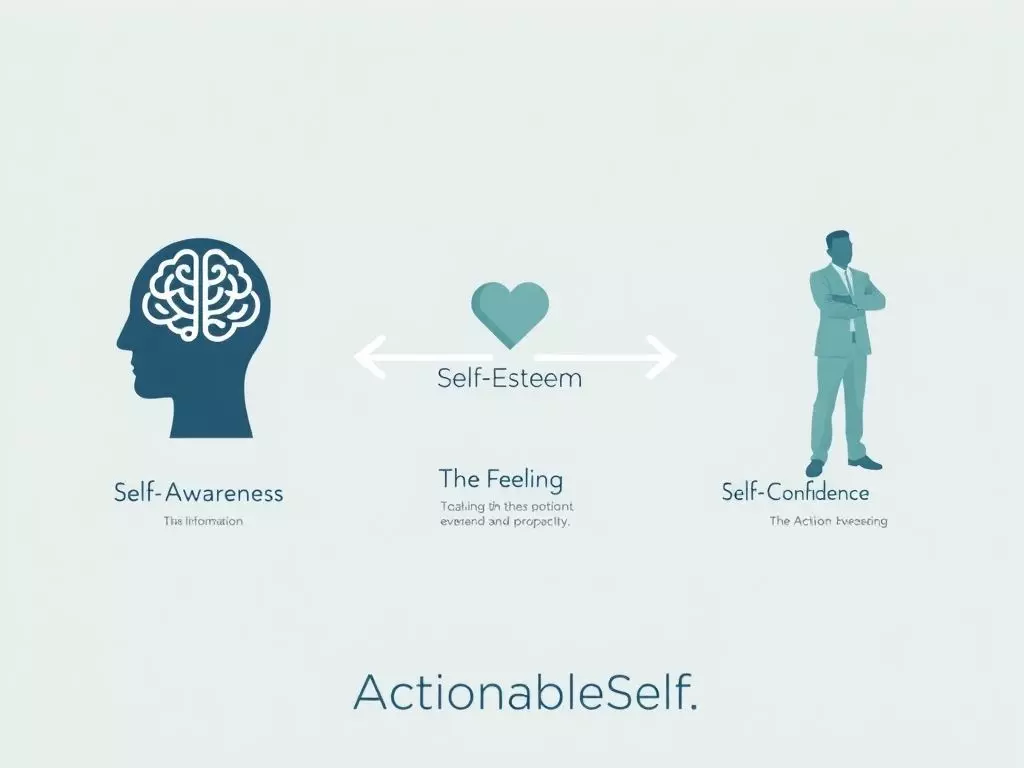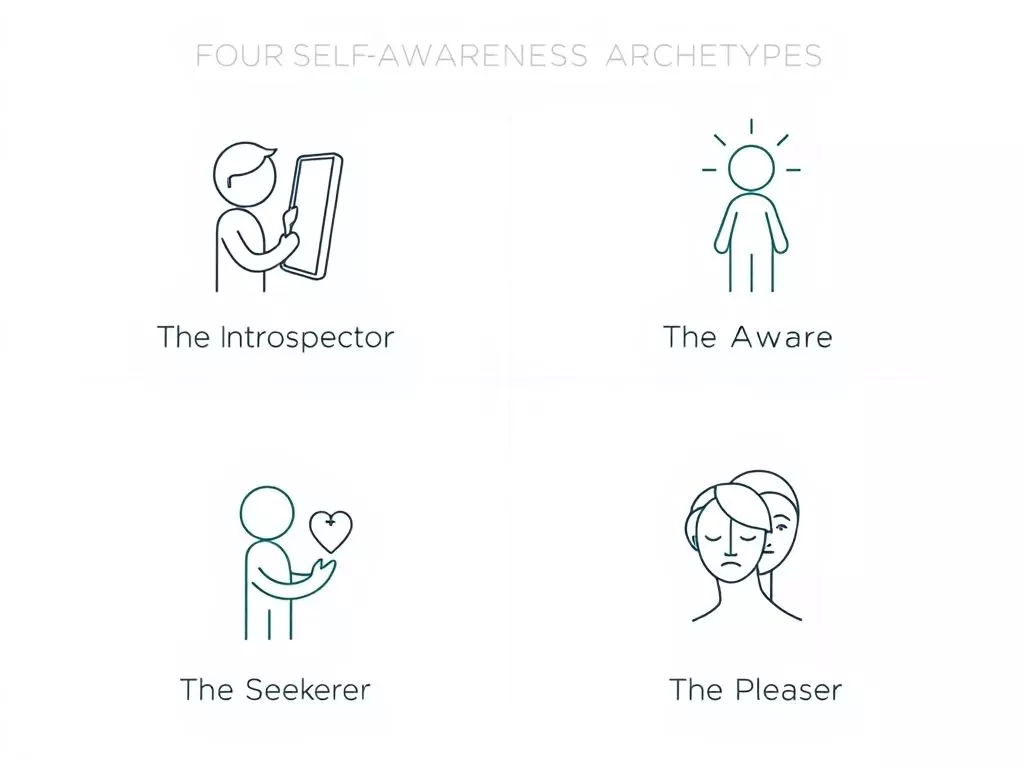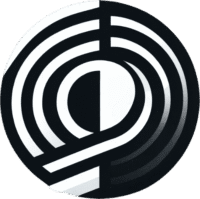Self-awareness is one of the most frequently discussed but least understood concepts in personal development. We’re often told to “be more self-aware,” but what does that actually mean? Is it just thinking about yourself all the time, or is it something more profound?
In simple terms, self-awareness is the ability to see yourself clearly and objectively. It’s the honest answer to the question, “Who am I?”
It’s the foundation upon which all personal growth, emotional intelligence, and effective leadership are built. It is, without exaggeration, your greatest asset. A lack of it can lead to bad decisions, strained relationships, and a life that feels out of alignment. Cultivating it, on the other hand, is the first and most important step toward a life of purpose and fulfillment.
This guide will break down exactly what self-awareness is, explore its two critical types, and explain why developing this single skill is the most important work you can do.

A Clear Definition: Beyond Just Knowing Yourself
Self-awareness is the capacity to focus your attention inward and recognize how your actions, thoughts, and emotions align (or don’t align) with your internal standards.
While related, self-knowledge and self-awareness are not the same:
- Self-Knowledge is static information: knowing you like coffee and dislike traffic.
- Self-Awareness is a dynamic, in-the-moment skill:
- It’s understanding why you feel irritable after a bad night’s sleep.
- It’s recognizing the specific fear that causes you to procrastinate.
- It’s noticing the subtle shift in your body language when you feel defensive.
Organizational psychologist Dr. Tasha Eurich, a leading researcher on the topic, defines it as the “will and the skill to understand yourself and how others see you.” This is a brilliant definition because it highlights two crucial points:
- It’s a Skill: It’s not something you’re born with. It’s a muscle that can be trained and strengthened through consistent practice.
- It Has Two Sides: True self-awareness isn’t just about introspection; it’s also about understanding your impact on the world around you.
This leads us to the two critical types of self-awareness.
The Two Types of Self-Awareness: A Crucial Distinction

To truly cultivate this skill, you must understand and work on its two distinct components. Most people focus on one and neglect the other, leading to an incomplete picture.
1. Internal Self-Awareness: Seeing Yourself Clearly
- What it is: This is about looking inward. It’s the clarity with which you see your own inner world. This includes your:
- Values: What is most important to you in life?
- Passions: What energizes and excites you?
- Aspirations: What do you want to achieve?
- Thoughts: What are the recurring stories and beliefs you hold about yourself and the world?
- Feelings: Can you accurately identify and name your emotions as they happen?
- Behaviors: Do you recognize your own patterns and habits?
- Strengths & Weaknesses: What are you genuinely good at, and where do you struggle?
- Why it matters: High internal self-awareness is the bedrock of a fulfilling life. Research shows it’s strongly linked to higher job and relationship satisfaction, a greater sense of personal and social control, and overall happiness. It acts as a protective buffer against anxiety, stress, and depression because when you understand your inner world, you are less likely to be controlled by it.
2. External Self-Awareness: Understanding How Others See You
- What it is: This is about looking outward. It’s understanding how other people view you in relation to the same factors listed above. People with high external self-awareness are able to see themselves from others’ perspectives. They have a good sense of the impression they make.
- Why it matters: High external self-awareness is the key to strong and healthy relationships. It is the foundation of empathy. Leaders who can accurately see how their team perceives them are significantly more effective, trusted, and respected. People with high external self-awareness are better communicators, collaborators, and partners.
The Four Self-Awareness Archetypes

Dr. Eurich’s research found that by combining the two types, we can understand four distinct levels of self-awareness, or archetypes, that people often fall into:
- The Introspectors: High internal, low external awareness. They know themselves well but don’t challenge their own assumptions or seek feedback, so they don’t know how they are perceived.
- The Pleasers: Low internal, high external awareness. They are so focused on how they are perceived that they don’t know what they truly want or value.
- The Seekers: Low on both. They are just starting their journey and don’t yet have a clear understanding of themselves from either perspective.
- The Aware: High on both. This is the goal. They understand who they are and what they want, and they also understand how they fit into the world and how they are perceived by others.
The key is to build a balance of both.
Understanding these concepts is the first step. Learn how to apply them to build unshakeable confidence in our Journey to Self-Awareness & Self-Esteem: A Practical Guide.
Why Cultivating Self-Awareness is Non-Negotiable

Developing self-awareness isn’t just a feel-good exercise. It has a direct and profound impact on your success and happiness.
It’s the Foundation of Emotional Intelligence
Emotional intelligence (EQ) is one of the most critical skills for success in the 21st century. The entire model of EQ is built on a foundation of self-awareness.
- You cannot manage your emotions (Self-Management) if you cannot first recognize them.
- You cannot understand others’ emotions (Empathy) if you don’t understand your own.
- You cannot build healthy connections (Relationship Management) without this understanding.
It Leads to Better, More Aligned Decision-Making
Life is a series of decisions. When you have high self-awareness, you have a clear inner compass.
- Career Decisions: You know your strengths, passions, and values, so you can choose a career path that aligns with them, rather than just chasing a paycheck.
- Relationship Decisions: You understand your emotional triggers and communication patterns, so you can choose a partner you are truly compatible with.
- Daily Decisions: You know your priorities, so you can more easily say “no” to distractions and “yes” to what truly matters.
It Improves Your Relationships and Communication
When you understand your own biases, triggers, and communication style, you can interact with others more effectively. You are less likely to project your own insecurities onto others. You become a better listener because you are more aware of your own impulse to interrupt. This leads to fewer misunderstandings, less conflict, and deeper, more authentic connections.
It Boosts Your Career and Leadership Effectiveness
In the professional world, self-awareness is a superpower.
- For Professionals: It allows you to identify and work on your weaknesses, leverage your strengths, and seek out roles where you can thrive.
- For Leaders: It is the single most important predictor of leadership success. Leaders who are self-aware are more trusted, more effective, and lead more engaged and profitable teams. They understand their impact on others and can adapt their style to be more effective.
How to Develop Your Self-Awareness: Practical Starting Points

Self-awareness is a skill, and like any skill, it can be developed with consistent practice. Here are some simple but powerful ways to start.
Start a Journaling Practice
This is perhaps the most effective tool for building internal self-awareness. Writing forces you to untangle your thoughts and observe your own patterns.
- Action Step: Commit to writing for just 5 minutes every day for one week. Don’t worry about what you write. You can use simple prompts like:
- “What was the high point and low point of my day, and why?”
- “When did I feel most energized today? When did I feel most drained?”
- “What story am I telling myself about this situation?”
Practice Mindfulness and Meditation
Mindfulness is the practice of paying attention to the present moment without judgment. It trains you to observe your thoughts and feelings as they arise, rather than being swept away by them.
- Action Step: Download a guided meditation app like Headspace or Calm and try a 5-minute introductory meditation. The goal is not to “clear your mind,” but to simply notice when your mind wanders and gently bring it back.
Ask for Loving, Honest Feedback
Building external self-awareness is impossible without input from others.
- Action Step: Choose one or two people in your life who you trust and who you know care about you. Ask them one simple but powerful question: “What is one thing I could do to be a better [friend/partner/colleague]?” Be prepared to listen without defending yourself. The goal is to understand their perspective.
Become a Better Observer of Yourself
Throughout your day, practice “checking in” with yourself.
- Action Step: Set a random alarm on your phone for three times during the day. When it goes off, pause and ask yourself:
- “What am I feeling right now?” (Try to name the specific emotion).
- “What am I thinking right now?”
- “What am I doing right now?”
This simple practice builds the muscle of present-moment awareness.
The Start of Your Inward Journey
Self-awareness is not a destination you arrive at, but a skill you practice daily. It’s the courageous and continuous act of turning your attention inward to understand who you are, so you can intentionally decide who you want to become.
It is the light that illuminates the path ahead. Every other form of personal development—building better habits, improving your relationships, advancing your career—begins with this single, powerful skill.
What is one small thing you can do this week to practice self-awareness? (e.g., journaling, asking for feedback). Share your idea in the comments!
